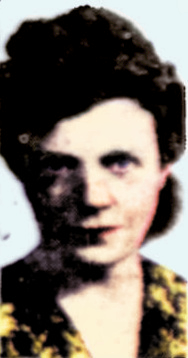The genius it is!
Well, evidently one can be a genius and wear a beard and show evidences of having a screw loose, and STILL produce a great picture. Citizen Kane, which every rival of RKO, every director, every production manager, every associate producer and I dare say every star in Hollywood devoutly prayed would be a flop, is a sensation! It is even said that it marks a turning point or milestone or whatever, in Motion Picture Making. Just how this crown will sit upon the head of the already bemused Orson Welles it is hard to predict. It would be wonderful if one reform would come out of it: and that is, letting ONE MAN see a screen production through, instead of the traditional practise of having it delegated to a hundred overlords and underlords.
One man’s contribution to this picture has been made too little of, it seems to me: and that is the photography of Gregg Toland, who did the amazingly original camera work. We just have to remember that Orson Welles had the best photographer in the industry to work out his nebulous ideas.
It makes me think of the fabulous Belasco, who got the whole credit for the work of a genius of an electrician, without whom it is extremely likely even Mr. Belasco could have obtained a mall percentage of his reputation.

